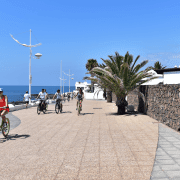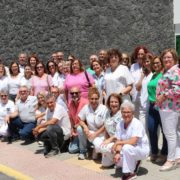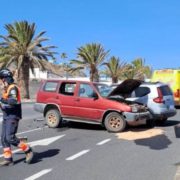Here are answers to some of the most common questions about the measures introduced under the royal decree published under Spain’s official State of Alarm on Saturday night.
The measures are intended to contain the spread of the COVID 19 coronavirus by social distancing – basically, keeping people apart so that infection cannot spread. This social distancing is at the heart of the #Quedateencasa (Stay At Home) campaign that has been launched by medical workers all over Spain.
This is not a curfew, however, and there are several exceptions when people are allowed to leave their homes. In all cases this is because of necessity – public leisure activities are effectively on hold throughout Spain for the next 15 days at least.
What is necessary? The royal decree lists several cases, and the government assure the public that agents will use “common sense” in assessing whether a journey is necessary or not. However, if you’re out and about, you’re advised to take anything you can to prove the reason for your journey: e.g., keep receipts, show doctors appointments on a phone etc.
Here are some questions about what you can and can’t do while the State of Alarm is in place:
Can I go shopping? Yes. Supermarkets will remain open and supplies have been guaranteed. The supermarket may limit entry to a certain amount of people, provide you with gloves, limit your time in the shop and you will be expected to keep a distance of at least one metre between yourself and other shoppers.
Can I attend a health centre or hospital? Yes, if you have an appointment or in the case of a genuine emergency.
Can I go to the bank? Yes. You can attend financial entities such as banks or insurance brokers. If possible, get an appointment.
Can I go to work? Yes. However, you or your employer has the responsibility to ensure that you cannot do your job from home.
Can I go out for a cup of coffee and a slice of cake? No. All bars, cafés and restaurants are closed under the decree. Even if they weren’t, this would not be classed a sufficient reason to go out.
Can I go to a petrol station to fill my tank? Yes.
Can someone else drive me to my hospital appointment? Yes. The Royal Decree states that journeys must be made individually unless they are accompanying a disabled person or for another “justified cause”.
Can I pick my daughter up at the airport? Yes. You are permitted to pick up family members returning from a journey as long as you drive alone, although it is recommended that they take a taxi.
Can I go for a walk or a run? No. Personal exercise is not classified as a necessity.
Can I walk my dog? Yes. As long as you do so alone.
Can I take children outside? No, except in unavoidable cases.
Can I buy clothes? No. Clothes shops are not classed as of first necessity and will be closed. You can however buy online.
Can I babysit for a friend while she buys food? Yes. You are allowed to travel to offer “care and assistance” for children, the elderly, the disabled or the vulnerable.
Can I go out to buy cigarettes or a newspaper? Yes. Tobacconists, newsagents, bookshops, stationers, chemists, launderettes, dry cleaners, opticians and hairdressers (for the elderly who cannot wash their own hair) are permitted to open. Electrical and telecommunications shops and pet food sellers are also permitted to open.
Can I catch a bus? Yes. Public transport will continue, although the timetable will be reduced.
What happens if I ignore any of these rules? You could be fined anything from €100 to €600,000 or even given a three-month jail sentence, depending on the severity of the offence. However, it is likely that you will first receive a warning, and be asked to identify yourself. If you do leave the house, be sure to take ID with you.











